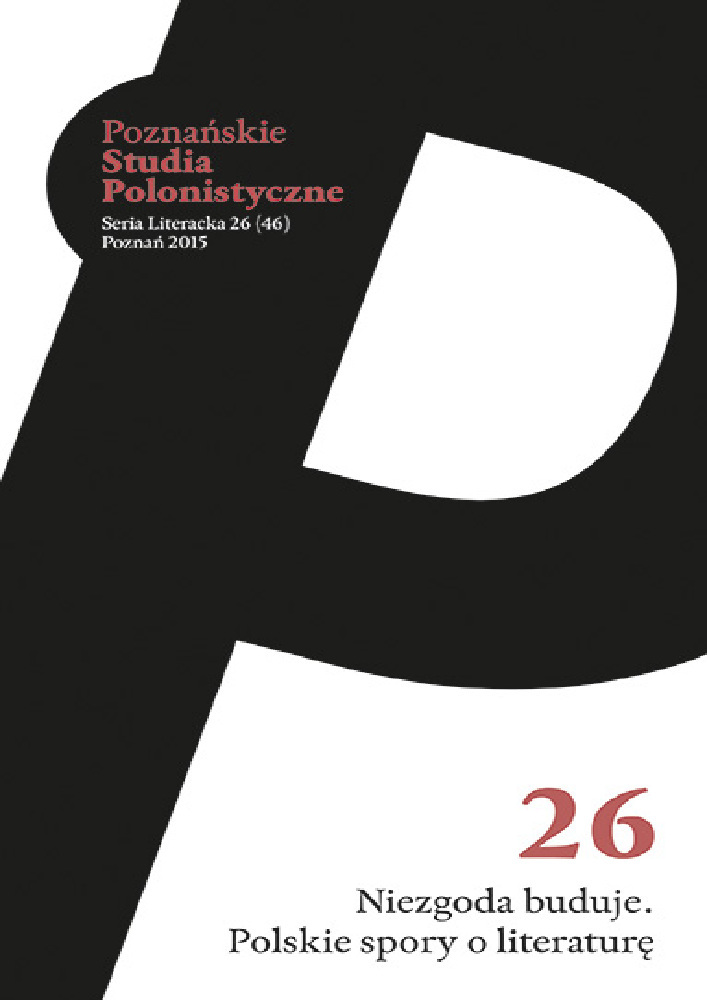Abstract
As the title suggests, the article focuses on Chinese traces and motifs in Teodor Parnicki’s prose. The considerations pertain to his historical novels Koniec “Zgody Narodów” and Słowo i ciało where the Chinese elements create extremely specific philosophical and cultural contexts. The analysis revolves around the contacts between ancient Chinese kingdoms and the Asian Hellenistic monarchies mentioned in both novels. As a result of the analysis, Parnicki is presented as a writer attempting to capture the psychological phenomenon of an individual meeting with the paradigm of a mysterious, highly distant civilisation.
References
Cieślikowska Teresa (1965), Pisarstwo Teodora Parnickiego, PAX, Warszawa.
Czermińska Małgorzata (1974), Teodor Parnicki, PIW, Warszawa.
Koziołek Ryszard (2008), Tren Chozroesa, w: Tajemnice „Słowa i ciała”. Szkice o powieści Teodora Parnickiego, red. Tomasz Markiewka i Krzysztof Uniłowski, Wydawnictwo Uniwersytetu Śląskiego, Katowice, s. 136-147.
Parnicki Teodor (1980), Historia w literaturę przekuwana, Czytelnik, Warszawa.
Parnicki Teodor (1981a), Koniec „Zgody Narodów”. Powieść z roku 179 przed narodzeniem Chrystusa, PAX, Warszawa.
Parnicki Teodor (1981b), Słowo i ciało. Powieść z lat 201-203, PAX, Warszawa.
Szymutko Stefan (1992), Zrozumieć Parnickiego, Gnome Books, Katowice.
License
Authors
Authors of texts accepted for publication in „Poznańskie Studia Polonistyczne. Seria Literacka” are required to complete, sign and return to the editor's office the Agreement for granting a royalty-free license to works with a commitment to grant a CC sub-license.
Under the agreement, the authors of texts published in „Poznańskie Studia Polonistyczne. Seria Literacka” grant the Adam Mickiewicz University in Poznań a non-exclusive, royalty-free license and authorize the use of Attribution-NoDerivatives 4.0 International (CC BY-ND 4.0)Creative Commons sub-license.
The authors retain the right to continue the free disposal of the work.
Users
Interested Internet users are entitled to use works published in „Poznańskie Studia Polonistyczne. Seria Literacka” since 2016, for non-commercial purposes only, under the following conditions:
- attribution - obligation to provide, together with the distributed work, information about the authorship, title, source (link to the original work, DOI) and the license itself.
- no derivatives - the work must be preserved in its original form, without the author's consent it is not possible to distribute the modified work, such as translations, publications, etc.
Copyrights are reserved for all texts published before 2016.
Miscellaneous
Adam Mickiewicz University in Poznań retains the right to magazines as a whole (layout, graphic form, title, cover design, logo etc.).
